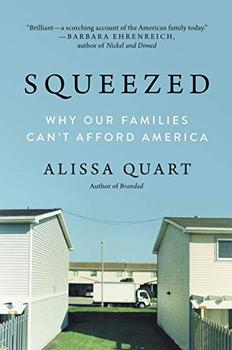Summary | Excerpt | Reviews | Beyond the book | Read-Alikes | Genres & Themes | Author Bio

A Manifesto
by Mary BeardThe treatise Women & Power: A Manifesto discusses a scene in Homer's Odyssey in which Odysseus's teenage son, Telemachus, lectures his mother about speaking to men, and tells her to return to her room ("…for mine is the power in this household.") Mary Beard uses this as an example of how Western culture has, from ancient times, kept women from political and social power largely by insisting that they be silent, denying them a voice in public discourse. She explains how women can be heard by redefining power.
Beard is Professor of Classics at the University of Cambridge and a Royal Academy of Arts Professor of Ancient Literature and she uses her extensive knowledge of ancient Greece and Rome as the jumping off point. She draws parallels between the classic Homeric moment of silencing a woman and some of the ways in which women's voices are not publicly heard in contemporary culture. Beard cites modern examples: U.S. Senator Elizabeth Warren was barred from reading a letter by Coretta Scott King into the public record. This same letter was later read by Bernie Sanders, who was not barred.
The author sets forth her basic premise: "our mental, cultural template for a powerful person remains resolutely male." She argues that women who do achieve political success often do so by acting male: wearing pantsuits, limiting makeup and pitching their voices low. "Women in power," Beard writes, "are seen as breaking down barriers, or alternately as taking something to which they are not entitled." Her call to action is that men and women become aware of this disparity and start rethinking their definition of power.
You cannot easily fit women into a structure that is already coded as male; you have to change the structure. That means thinking about power differently. It means decoupling it from public prestige. It means thinking collaboratively, about the power of followers not just of leaders. It means, above all, thinking about power as an attribute or even a verb ("to power"), not as a possession. What I have in mind is the ability to be effective, to make a difference in the world, and the right to be taken seriously, together as much as individually.
Beard definitely raises a number of valid and interesting points and I found her opinions fascinating; unfortunately I also found her argument less than persuasive at times. The manifesto often references a cartoon that appeared in Punch, in which one woman sits in a boardroom with a number of men. The caption has one of them saying to her, "That's an excellent suggestion, Miss Triggs. Perhaps one of the men here would like to make it."
For a start is doesn't much matter what line you take as a woman, if you venture into traditional male territory, the abuse comes anyway. It is not what you say that prompts it, it's simply the fact that you're saying it...There can't be a group of female friends or colleagues anywhere, which hasn't regularly discussed the day-to-day aspects of the 'Miss Triggs question,' whether in the office, or a committee room, council chamber, seminar or the House of Commons... [I]f there's one thing that bonds all women of all backgrounds of all political colours, in all kinds of business and profession, it is the classic experience of the failed intervention.
As a woman in a predominantly male field, I don't necessarily agree; perhaps I'm one of the lucky ones, but I've never felt silenced and I don't remember discussing the "Miss Triggs question" with any of the businesswomen I know. Beard's work consequently seems overly generalized, claiming to speak for all women when she clearly doesn't. Certainly women, particularly those in politics, have been belittled and silenced, but I think when one takes the long view it becomes apparent that this is becoming less and less common with each generation. But perhaps I'm naïve; the "Me Too" movement currently underway indicates an abuse of women by powerful men and by raising their voices these women are increasing awareness and reclaiming their own power. Beard does not venture into this territory, in part because the lectures on which the book is based took place before the movement. As a result I sometimes felt Beard's arguments to be dated. I know that by definition a manifesto is brief (see 'Beyond the Book'), but perhaps in this case it is a bit too brief. I longed to hear more of the author's opinions and suggestions on how to achieve her goal of redefining power.
The timing of the publication of Women & Power couldn't be better since a new women's movement – politically and culturally – is on the rise. Beard's manifesto definitely prompts thought and awareness and will make an excellent book group choice.
![]() This review
first ran in the March 7, 2018
issue of BookBrowse Recommends.
This review
first ran in the March 7, 2018
issue of BookBrowse Recommends.

If you liked Women & Power, try these:

by Sophie Gilbert
Published 2025
From Atlantic critic and Pulitzer Prize finalist Sophie Gilbert, a blazing critique of early aughts pop culture.

by Alissa Quart
Published 2019
Families today are squeezed on every side - from high childcare costs and harsh employment policies to workplaces without paid family leave or even dependable and regular working hours. Many realize that attaining the standard of living their parents managed has become impossible.
Your guide toexceptional books
BookBrowse seeks out and recommends the best in contemporary fiction and nonfiction—books that not only engage and entertain but also deepen our understanding of ourselves and the world around us.